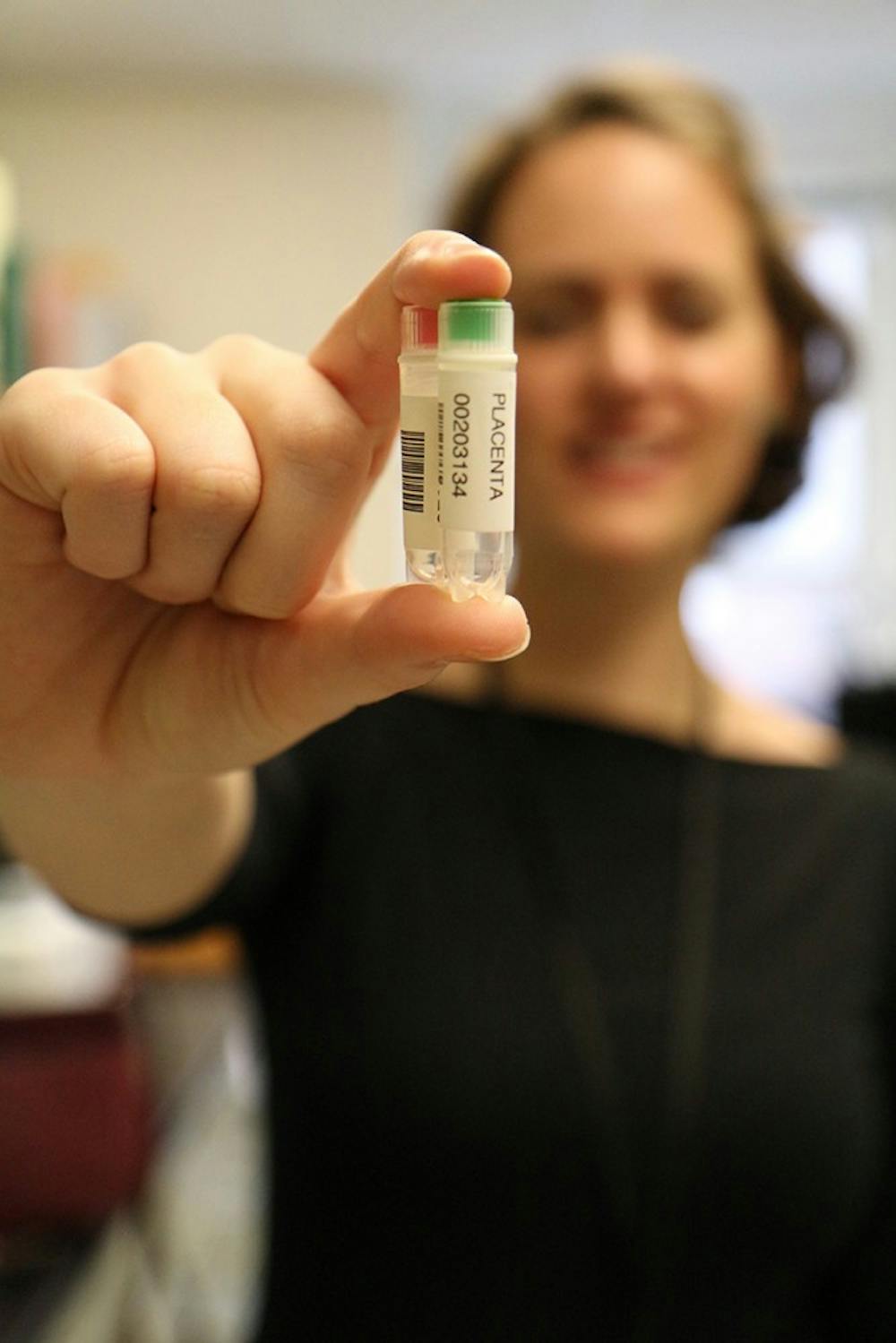The University’s Medical Center is in the process of collecting data for the Obstetric and Neonatal Outcomes Study (ONOS) cohort, a repository of blood, urine, stool and tissue samples from women during and following pregnancy.
With the women’s permission, doctors gather the additional samples during regular checkups. The specimens are then transported to a freezer in the West Complex of the University’s Medical Center and stored for future use.
Dr. Donald Dudley, the William T. Moore professor and director in the Division of Maternal-Fetal Medicine, instituted the cohort a little over a year ago and continues to oversee the collection of specimen from over 200 voluntary participants.
“It’s going to be a resource for us in order to do different kinds of studies to look at pregnancy outcomes and different ways to predict and hopefully prevent adverse pregnancy outcomes,” Dudley said. “The whole idea behind this is not only can we do discovery science but we can do validation science. That is, we can discover new things but then also take other discoveries and then validate them in our own population.”
Anna Maria Siega-Riz, a professor of nursing and associate dean for research in the School of Nursing, is a co-leader with Dudley of the cohort. Siega-Riz stressed the importance of having data available for researchers.
“The main goal is to increase our research capacity and answer questions related to improving prenatal care and the lives of women and children,” Siega-Riz said. “Otherwise, you would have to start over every time somebody had a question … Instead of having to have these cycles of data collection and have multiple people doing that, we have one cohort that serves multiple purposes.”
The cohort offers a wealth of clinical information for research ranging from the interplay between the diet of mothers-to-be and early development to potential markers for preterm delivery. While one of Siega-Riz aims is to examine the effects patients’ nutritional status has on their pregnancies, Dudley’s interest lies in identifying new signals for complications during pregnancy and birth.
“I’m more interested in more biomedical problems, such as immunologic problems that could contribute to adverse pregnancy outcomes,” Dudley said. “If we can come up with new ways to predict these and potentially prevent problems, then we can improve pregnancy outcomes.”
Research opportunities also extend beyond care during pregnancy and delivery. For example, Caitlin Dreisbach, a doctoral student and registered nurse clinician in pediatrics, plans to follow up with the patients to determine the influence the microbiome — the internal environment of the gut — has on mothers’ mental health and the neurological development of their babies.
“We’re looking at the mother’s microbiome and the infant microbiome as well as the maternal well-being aspect of infant development in the first year of life,” Dreisbach said. “There’s a concept called the gut-brain access, and it’s a scientific premise about how the microbiome and the intestinal tract are linked to the brain … A lot of the research is really new, and I think that’s what makes our project so interesting.”
Dreisbach, along with Caroline Kelsey, a psychology doctoral student, received the Presidential Fellowship through the University’s Data Science Institute for their research proposal. The two will begin their work with 100 women and their children in the cohort, analyzing stool samples and assessing patients’ levels of stress and anxiety and overall psychological state.
In fact, the success of the cohort depends on patients’ contributions. Participation is voluntary, and the additional commitment minimal. The women are only required to allow doctors to collect additional specimens for the cohort during routine procedures and checkups. No additional appointments or paperwork is necessary.
“One of the things we’re very mindful of is to keep the study burden as low as possible so that we really don’t burden the patients with a lot of forms or interviews or a lot of extra blood draws or anything like that,” Dudley said. “Once you start putting on too much study burden on patients, it becomes less likely that they’re going to continue.”
Currently, the cohort includes samples from more than 220 women, with an estimated 60 percent participation rate. Siega-Riz expressed gratitude for the women who offered to allow doctors to collect additional samples, saying the cohort has made every effort to gain the women’s trust and honor the women’s willingness to help further doctors’ understanding of pregnancy.
“Research really hangs on people’s ability to be able to trust us and appreciate the fact that they are contributing their biological specimens, their health information, in order to improve the lives of future generations,” Siega-Riz said. “We value that trust, and we wouldn’t do anything to break that trust.”
Siega-Riz said every few weeks brings several new women who agree to donate samples for research. As the cohort grows at a steady rate, the potential for new discoveries that aid pregnant women continues to increase.
“There are tremendous opportunities with a cohort like this,” Dudley said. “The hope is that we would be able to expand our knowledge base and improve outcomes.”







